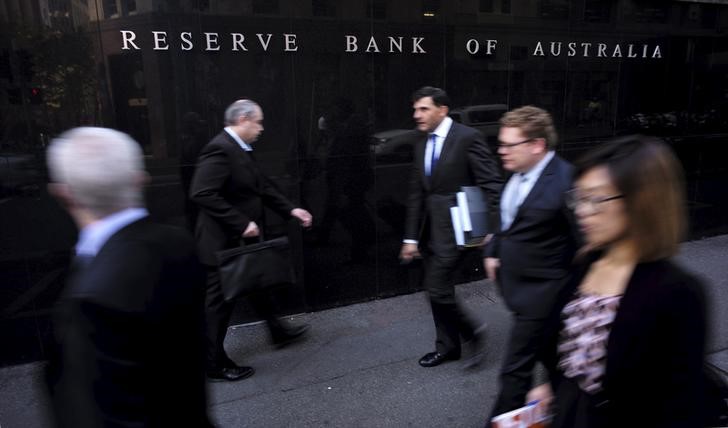Street Calls of the Week
(Recasts lead, adds governor comments)
SYDNEY, Feb 22 (Reuters) - The head of Australia's central bank on Wednesday gave the clearest signal yet that further cuts in interest rates would not be in the national interest as the danger of a debt-fuelled boom and bust was too severe.
The Reserve Bank of Australia (RBA) has kept interest rates at a record low 1.50 percent after last easing in August, and Governor Philip Lowe hopes the current setting will be low enough to deliver balanced economic growth.
"We set out to choose the path that, in our judgement, best promotes the welfare of the Australian people," he said in a speech in Sydney.
Lowe, who took over the reins at the RBA last September, has repeatedly stressed the diminishing returns to the economy from lowering interest rates further.
"We have been seeking to balance the risks from having inflation low for a longer period against the risks from attempting to increase inflation more quickly, which would partly occur through encouraging more borrowing," said Lowe.
Lowe said a high and rising unemployment rate might add to the case for more stimulus, but so far the bank was satisfied that the labour market was heading in the right direction.
While there was a danger that low inflation could lead to a self-fulfilling decline in inflation expectations, he did not see "a particularly high risk" of this in Australia.
However, he did see risks in encouraging more borrowing by households where debt to income ratios were already at record highs.
"At some point in the future, households having decided that they had borrowed too much, might cut back consumption sharply, hurting the overall economy and employment," he warned.
"It is difficult to quantify this risk, but it is one that is difficult to ignore."
This is a major reason financial markets have almost priced out the chance of another cut in the current 1.5 percent cash rate following last year's two easings.
Lowe noted that high levels of debt combined with subdued wages growth were already making households wary of spending freely and they were saving more instead.
While some pick up in wages growth was expected, the RBA's liaison with business suggested the upturn was not imminent, he said.
Lowe repeated the central bank's forecast that economic growth would accelerate to around 3 percent this year and next and that underlying inflation would return only slowly to its long-term target band of 2 to 3 percent.
